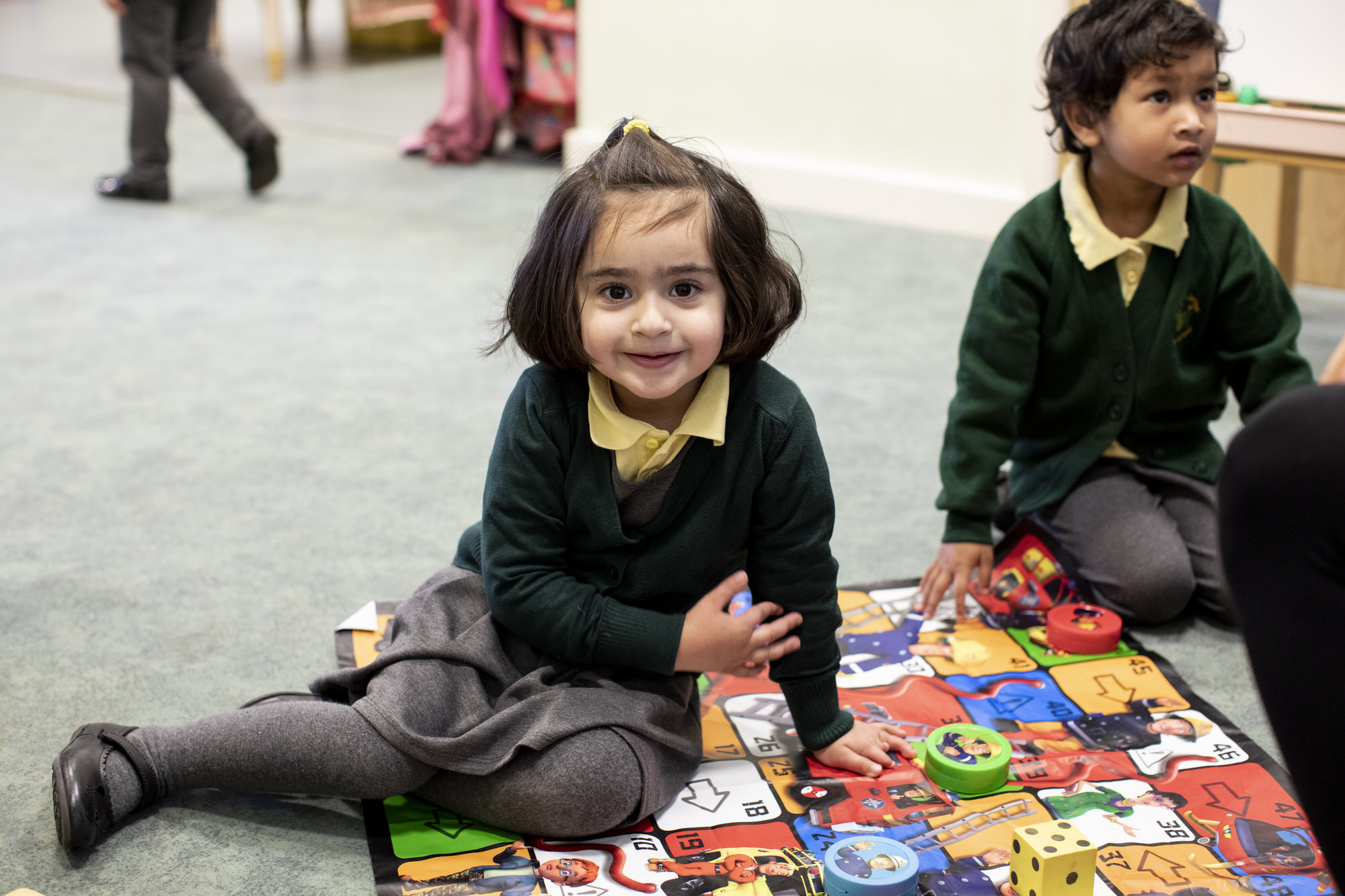
EYFS stands for Early Years Foundation Stage.
Our Aims
Our principal objective is to give the children secure foundations for later learning by building on skills they have previous learnt at home, at nursery or at their preschool.
Throughout the Year we work to develop key learning skills such as listening, speaking and sustained concentration. As part of this the children learn to work together and to co-operate with adults and other children.
The aims of the reception team are to:
- provide a well-planned and resourced curriculum
- meet the emotional and educational needs of each child
- help children learn and provide opportunities for all children to succeed
- provide an atmosphere of care and of feeling valued
- encourage each child to become independent.
The Foundation Stage curriculum is set out by the Government and covers seven areas of learning as follows:
Personal, Social and Emotional Development
The children are encouraged to say what they like and dislike. Through participating in a variety of activities they will become more confident when speaking in a familiar group. Children at The James Cambell Primary School are always encouraged to become independent and yet to ask for help if they need it. At our school the children are valued individuals who are encouraged to respect each other and the school environment.
Communication and Language
Using stories and rhymes, we help the children to improve their listening and responding skills. It will become second nature to listen to what others have to say and to react effectively when given instructions. The children are always given the opportunity to speak in front of both small and large audiences and are encouraged to use past, present and future tenses accurately.
Physical Development
The children will be helped and supported to become very confident with their movements and will develop their control and co-ordination on a large and small scale. Safety is of huge importance and the children will be able to find a space of their own in which to work. The children will be introduced to a range of equipment for PE, cooking and constructing. They will be taught how to use these safely and efficiently.
We promote a healthy lifestyle in many ways at school. The children are made aware of, and are taught about, the importance of physical exercise, a balanced diet and other ways in which they can keep themselves healthy and safe. The children quickly become independent with regards to their personal hygiene.
Literacy
Reading
The children take part in daily phonics session where they are taught the sounds of the letters and how to put them together for reading, and separate them for spelling. Tricky words are taught through learning by sight, these are sent home weekly on a Phase Sheet. Parents are encouraged to read daily with their child.
Writing
The children are encouraged to use the sounds that they hear in words when attempting to spell them. The children will write sentences independently and are asked to read their work with adults and peers. Some words will be spelt correctly and other words spelt using the sounds. All attempts are praised.
Mathematics
Counting to 20, ordering numbers and finding one more and one less are skills that we work on throughout the Reception Year. This will help the children when we start to add and subtract two single-digit numbers and count on and back to find the answers. The children are encouraged to solve problems and to talk about how they are finding out the answers.
The children will use everyday language to talk about size, weight, capacity, position, distance, time and money to compare quantities and objects and to solve problems. They will be able to recognise, create and describe patterns. They will explore characteristics of everyday objects and shapes and use mathematical language to describe them.
Understanding the World
We spend a lot of time exploring the similarities and differences between people, cultures and lifestyles. The children have the opportunity to share the things that are going on in their own lives and to learn to be sensitive to their peers.
We enjoy helping the children to find out more about their own environment and about the world in which they live. They will explore changes that might occur through the seasons and make observations of animals and plants.
Children are becoming more and more knowledgeable about technology and how it is used at school and in the home. They enjoy using the computers, laptops, cameras and remote control cars.
Expressive Arts and Design
Singing songs, dancing and making music is something that the children love to experiment with. They are taught how to safely use and explore a variety of materials, tools and techniques, experimenting with colour, design, texture, form and function.
The children use what they have learnt about media and materials in original ways, thinking about uses and purposes. They represent their own ideas, thoughts and feelings through design and technology, art, music, dance, role-play and stories.
Characteristics of Effective Learning
The ways in which the child engages with other people and their environment underpin learning and development across all areas and support the child to remain an effective and motivated learner. When planning activities and experiences within Reception, teachers will keep in mind the different ways in which children learn.
The Characteristics of Effective Learning include: playing and exploring, active learning, and creating and thinking critically.
